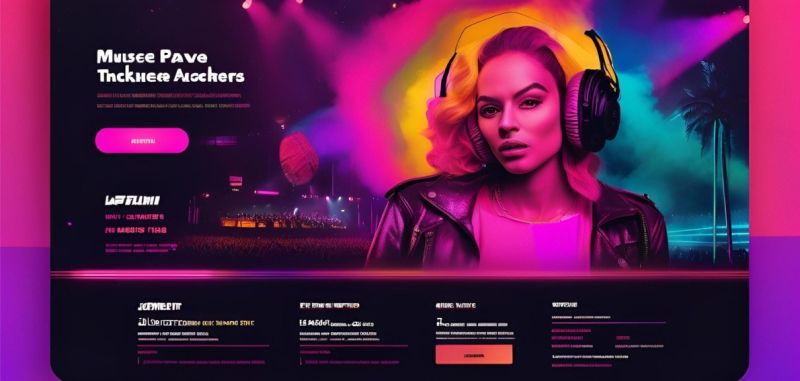In today’s digital-first world, the success of your event heavily depends on its online visibility. Search Engine Optimization (SEO) has become an indispensable tool for event organizers and event planners looking to stand out in an increasingly crowded digital landscape. With over 80% of potential attendees discovering events through online searches, mastering SEO has become crucial for event success. This comprehensive guide will walk you through proven strategies and cutting-edge techniques to enhance your event
Why SEO Matters for Event Organizers
The events industry has undergone a dramatic transformation in recent years, with digital discovery becoming the primary pathway to event attendance. Understanding and implementing search engine optimization strategies is no longer optional for event organizers and event planners—it’s a crucial component of event marketing success. When implemented correctly, SEO can reduce your marketing costs while significantly increasing your event’s visibility to targeted audiences who are actively searching for events like yours.
What is SEO in Event Marketing?

SEO in event marketing refers to the process of optimizing an event website to rank higher in search engine results pages (SERPs) for specific keywords and phrases. This involves understanding how a particular search engine works, what people search for, and the keywords and phrases they use. By optimizing an event website for search engines, event marketers can increase the visibility of their event, drive more organic traffic to their website, and ultimately attract more attendees.
In the context of event marketing, SEO encompasses various strategies, including keyword research, content creation, and technical optimization. By targeting relevant keywords that potential attendees are likely to use, event organizers can ensure their event pages appear prominently in search engine results. This increased visibility can lead to higher click-through rates and more registrations.
Moreover, SEO is not just about attracting any traffic; it’s about attracting the right traffic. By understanding the search intent behind specific keywords, event marketers can create content that meets the needs of their audience, providing valuable information that encourages engagement and conversion. This holistic approach to SEO helps build a strong online presence, making it easier for potential attendees to discover and connect with your event.
Essential Search Engine Optimization Strategies for Event Success
1. Build a Strong Foundation with Event Websites Optimization

Your event website serves as the cornerstone of your digital presence, acting as the primary touchpoint for potential attendees. A well-optimized event page is crucial for providing essential event details to search engines, which helps improve search rankings and attract more attendees. A well-optimized website not only improves your search rankings but also enhances the user experience, leading to higher conversion rates. Modern search engines prioritize websites that provide excellent user experiences, making technical optimization crucial for SEO success.
Website optimization encompasses several key areas that directly impact your search rankings and user engagement. Performance optimization ensures your website loads quickly and responds seamlessly across all devices. Security measures, including SSL certificates and proper data handling, signal trustworthiness to both search engines and users. Content structure and navigation play crucial roles in helping search engines understand your content hierarchy and helping users find the information they need.
Technical optimization priorities include:
- Server response time optimization (target under 200ms)
- Mobile-first design implementation
- SSL certificate installation
- XML sitemap creation and submission
- Robots.txt file optimization
- Clean URL structure implementation
- Browser caching configuration
- Image compression and optimization
- CDN implementation for faster global access
- Progressive web app capabilities
- Structured data markup
- Cross-browser compatibility
- Accessibility compliance
Also Read: Optimizing Music Event Page SEO: How to Maximize Search Engine Visibility
2. Master Keyword Research and Implementation

Effective keyword research forms the foundation of any successful search engine optimization strategy. For event organizers, this process requires understanding not just what terms people use to search for events, but also the intent behind those searches. Crafting compelling meta descriptions that encapsulate the essence of your content and include relevant keywords can significantly improve click-through rates. Your keyword strategy should encompass the entire event journey, from discovery to post-event engagement, ensuring you capture potential attendees at every stage of their decision-making process.
Implementation of keywords must be strategic and natural, avoiding the common pitfall of keyword stuffing. Each page on your event website should target specific keyword clusters while maintaining readability and engagement. This includes careful optimization of meta titles, descriptions, headers, and body content to create a cohesive and effective SEO strategy.
Advanced keyword research and implementation strategies:
- Analyze search intent patterns specific to event-related queries
- Track seasonal keyword variations and trends
- Monitor competitor keyword strategies
- Identify long-tail keyword opportunities
- Research location-based search terms
- Study industry-specific terminology
- Track keyword difficulty scores
- Monitor search volume trends
- Analyze keyword conversion rates
- Implement contextual keyword variations
- Use natural language processing insights
- Consider voice search optimization
- Map keywords to user
3. Develop an Event Marketing Strategy

Event marketing strategies serve as powerful tools for improving your event’s SEO performance while providing value to potential attendees. A comprehensive event marketing and content strategy helps establish your event’s authority in your industry while creating multiple entry points for organic search traffic. Quality content not only attracts visitors but also encourages them to share your content, creating valuable backlinks and social signals.
Your event marketing strategy should address the various stages of the event planning and attendance process, from initial awareness to post-event engagement. Each piece of content should serve a specific purpose in your marketing funnel while maintaining SEO best practices. Regular updates signal to search engines that your site is active and relevant, potentially improving your search rankings and user engagement.
Essential content types and strategies:
- Comprehensive event guides and FAQs
- Speaker spotlight articles and interviews
- Industry trend analysis and reports
- Behind-the-scenes preparation content
- Attendee success stories and testimonials
- Event preparation checklists
- Travel and accommodation guides
- Session previews and highlights
- Networking opportunity overviews
- Post-event recap articles
- Video content and transcripts
- Infographics and visual content
- Interactive content elements
Also Read: How To Leverage Event Themes Into A Cohesive Marketing Strategy
4. Optimize for Local Search

Local SEO plays a crucial role in attracting attendees to physical events. Understanding and implementing local search optimization techniques can significantly increase your visibility to potential attendees in your target geographic area. Local search optimization requires a multi-faceted approach that combines traditional SEO practices with location-specific strategies.
Google Business Profile optimization serves as the cornerstone of local SEO success. A well-maintained profile provides potential attendees with crucial information about your event while improving your visibility in local search results. Regular updates and engagement with reviews help maintain an active presence in local search results.
Local SEO implementation checklist:
- Complete and verify Google Business Profile
- Maintain consistent NAP information across platforms
- Generate and manage local citations
- Optimize for local keywords and phrases
- Create location-specific landing pages
- Implement local schema markup
- Encourage and manage reviews
- Develop local content partnerships
- Utilize local social media engagement
- Create location-specific meta data
- Build local backlink profiles
- Monitor local competitor activities
5. Technical SEO Implementation

Technical SEO ensures that search engines can effectively crawl, index, and understand your event website. This fundamental aspect of SEO requires attention to technical details that affect both search engine accessibility and user experience. Effective technical SEO ensures that your event details appear prominently on the search engine results page, enhancing visibility and attracting more attendees. Proper technical SEO implementation creates a strong foundation for all other SEO efforts.
Advanced technical SEO involves understanding and implementing various types of structured data, ensuring proper indexation, and maintaining website performance metrics. Regular technical audits help identify and address issues that could impact your search rankings or user experience.
Technical SEO priorities:
- Implement comprehensive schema markup
- Optimize site architecture
- Manage XML sitemaps
- Configure robots.txt properly
- Monitor crawl budget
- Implement AMP for mobile
- Optimize internal linking structure
- Manage redirect chains
- Monitor site performance metrics
- Implement progressive web apps
- Optimize JavaScript rendering
- Configure international targeting
- Maintain proper canonical tags
6. Build Quality Backlinks

Backlinks remain one of the most important ranking factors in SEO. For event organizers, building a strong backlink profile requires creating valuable content and fostering relationships within your industry. Quality backlinks from relevant, authoritative sources signal to search engines that your event website is trustworthy and valuable.
Effective backlink building combines creative content creation with strategic outreach efforts. Focus on developing relationships with industry publications, speakers, sponsors, and other relevant organizations that can provide valuable backlinks to your event website.
Strategic backlink building approaches:
- Create shareable content assets
- Develop industry partnerships
- Leverage speaker networks
- Engage with media outlets
- Participate in industry forums
- Create resource pages
- Implement broken link building
- Utilize HARO opportunities
- Generate press coverage
- Create case studies
- Develop influencer relationships
- Launch content partnerships
- Monitor competitor backlinks
Also Read: How to Write the Perfect Event Press Release: 6 Easy Tips
7. Social Media Integration

While social media signals don’t directly impact search rankings, they play a crucial role in your overall SEO strategy. Social media platforms provide opportunities to amplify your content, engage with potential attendees, and create valuable signals that indirectly benefit your SEO efforts.
A well-executed social media strategy complements your SEO efforts by increasing brand visibility, driving traffic to your website, and creating opportunities for natural backlink acquisition. Integration between your social media presence and website helps create a cohesive digital marketing strategy.
Essential social media optimization strategies:
- Implement social sharing buttons
- Create platform-specific content
- Optimize social meta tags
- Develop hashtag strategies
- Encourage user-generated content
- Monitor social engagement metrics
- Create shareable visual content
- Integrate social proof elements
- Maintain consistent branding
- Track social traffic patterns
- Leverage social advertising
- Build community engagement
- Monitor social mentions
8. Measure and Analyze Performance with Google Search Console

Success in SEO requires consistent monitoring and analysis of your efforts. Ranking well on search engine result pages leads to increased traffic and better engagement, making it crucial to monitor your SEO performance. Implementing comprehensive tracking and analysis helps identify what’s working and what needs adjustment in your SEO strategy. Regular performance reviews enable data-driven decision-making and strategy refinement.
Performance measurement should encompass both technical SEO metrics and business outcomes. This holistic approach to analysis helps ensure that your SEO efforts align with your event’s overall goals and objectives.
Key metrics and analysis tools:
- Track organic search traffic
- Monitor keyword rankings
- Analyze conversion rates
- Measure page load times
- Review bounce rates
- Track engagement metrics
- Monitor backlink quality
- Analyze user behavior
- Track local search performance
- Measure social signals
- Monitor competitive metrics
- Analyze technical SEO health
- Track ROI measurements
Conclusion
Implementing a comprehensive SEO strategy for your event requires dedication, consistency, and attention to detail. By following these expanded guidelines and regularly updating your approach based on performance data, you can significantly improve your event’s online visibility and attract more attendees.
Remember that SEO is an ongoing process that requires regular monitoring and adjustment. Stay informed about the latest SEO trends and algorithm changes, and be prepared to adapt your strategy accordingly. With patience and persistence, you’ll see your event climbing the search rankings and reaching a wider audience.
Additional Resources

To further enhance your event’s SEO strategy, consider exploring these helpful tools and platforms:
- Google Search Console
- Google Analytics 4
- SEMrush or Ahrefs
- Schema Markup Generator
- Mobile-Friendly Test
- PageSpeed Insights
- Local SEO audit tools
- Content planning calendars
- Keyword research tools
- Technical SEO audit platforms
- Backlink analysis tools
- Social media analytics platforms
These tools can provide valuable insights and guidance for any event planner looking to improve their event’s SEO performance.
This comprehensive approach to SEO will help ensure your event achieves maximum visibility and attracts your target audience effectively.
You May Also Like:
How to SEO Optimize Your Music Event for Search Engines
Music Festival Marketing: The Ultimate Guide to Boosting Ticket Sales and Buzz
Anti Scalping for Event Management: Why These Measures Are Essential – A Complete Guide



 14th March 2025
14th March 2025